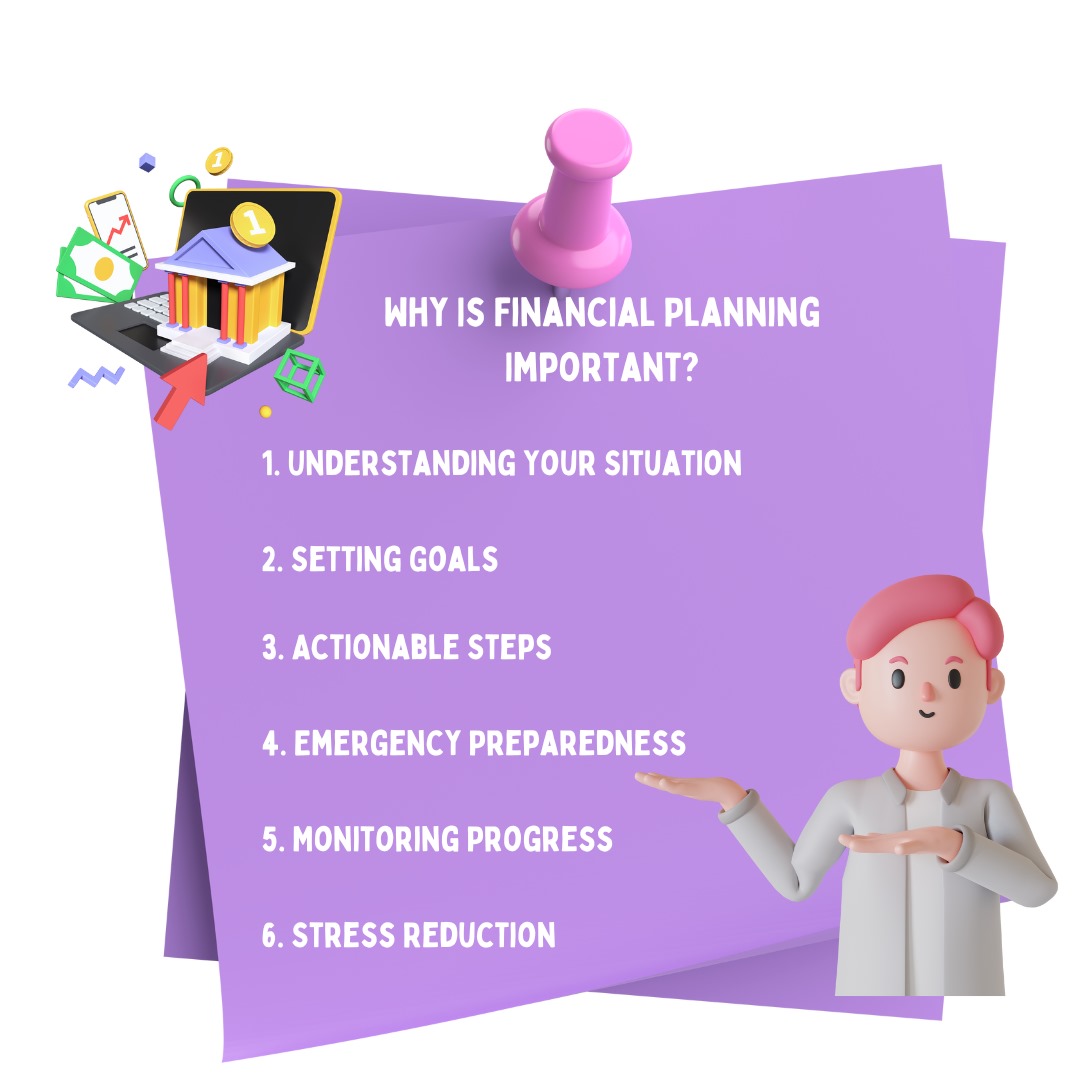What is Financial Planning? Your Best 10-Step Approach to Making a Financial Plan

Can you navigate a ship without a map, compass, or even a destination? No, right?
So how can you manage your finances without a financial plan? Managing your finances without a plan is just like steering a ship with no direction.
Although financial planning might sound like an idea only for the wealthy or those nearing retirement, it’s a fundamental tool for anyone who wants to take control of their financial future.
Here, you’ll find the answer to what is financial planning, its importance, and its key features.
What Is Financial Planning?
At its core, a financial plan is like a roadmap for your money.
It’s a detailed document that assesses your current financial situation and outlines both short- and long-term financial goals. It also includes strategies to achieve those goals.
Think of it as a tool that helps you manage life’s financial aspects, from risks and income to spending and debt. A well-crafted financial plan can provide guidance and clarity, ensuring that you’re prepared to meet your financial obligations and achieve your financial dreams.
Why Is Financial Planning Important?
You may be asking yourself, “What is the importance of having a financial plan?” Here’s the answer:
- Understanding Your Situation
Financial planning involves taking a deep dive into your financial life, including income, spending, debt, and saving. It’s like taking a snapshot of where you are financially right now.
- Setting Goals
A financial plan helps you set clear financial goals. These could include saving for your child’s education, buying a larger home, starting a business, or ensuring a comfortable retirement.
- Actionable Steps
Once you have your goals in sight, a financial plan provides you with a roadmap to reach them. It outlines the specific actions you need to take, like budgeting, saving, and investing.
- Emergency Preparedness
Life can throw unexpected curveballs. A financial plan includes building an emergency fund to cover your expenses in case of unexpected events, providing financial security when you need it most.
- Monitoring Progress
Your financial plan is like a personal financial coach. It lets you track your progress toward your goals, ensuring you stay on course.
- Stress Reduction
Financial planning reduces financial stress. Knowing you have a plan in place can provide peace of mind and alleviate worries about your financial future.
This knowledge of the importance of financial planning is surely going to complement your knowledge of what is Financial Planning.
Features of a Financial Plan
By now you are already know what is financial planning. To gain a well-rounded view, let’s look at the key features of a financial plan:
- Net Worth Calculation
Your net worth is the starting point. It’s calculated by subtracting your liabilities (what you owe) from your assets (what you own), providing a snapshot of your current financial situation.
- Cash Flow Analysis
Understanding your cash flow is crucial. This involves tracking your income and expenses, helping you identify how much you need for necessities, savings, and investments.
- Goal Setting
A financial plan includes setting clear, achievable financial goals. Whether it’s funding your child’s education, buying a home, or retiring comfortably, your goals become the cornerstone of your plan.
- Investment Strategy
Depending on your goals and risk tolerance, your financial plan outlines an investment strategy. This can include retirement accounts, taxable investments, and diversified portfolios.
- Risk Management
Life is unpredictable, so your plan includes risk management. This involves insurance coverage to protect you and your loved ones in case of accidents, health issues, or unforeseen events.
- Tax Optimization
Your financial plan also addresses tax strategies to minimize your tax liability. It explores deductions, credits, and tax-efficient investment strategies.
- Estate Planning
For those with specific legacy goals, estate planning becomes part of the plan. This guarantees that your assets are distributed in accordance with your desires.
Now that you’re well aware of what is financial planning, features of a financial plan, let’s see when you should create a financial plan for yourself.
When to Create a Financial Plan?
Financial planning isn’t a one-time event; it’s an ongoing process. Here are some instances when creating or revisiting your financial plan is essential.
- A change in income or expenses requires adjusting your financial plan to stay on track.
- Events like marriage, having children, or divorce impact financial goals and priorities.
- Health issues may require reallocating funds and adjusting your financial strategy.
- Unexpected inheritances or insurance payments need a financial plan to maximise their impact.
If you think, you must create a financial plan, whether or not you find yourself in any of the above situations, check out the section below which outlines how to create a financial plan.
How to Create a Financial Plan
After knowing what is financial planning, its importance, and features, the next thing you must fully understand is how to create a financial plan.
Creating a financial plan involves several steps, whether you do it yourself or with professional help:
- Collect data from your financial accounts and documents.
- Determine your current net worth by subtracting liabilities from assets.
- Understand your income and expenses to allocate funds effectively.
- Define your short- and long-term financial goals.
- Set aside money for unexpected expenses.
- Focus on reducing debt to accelerate savings.
- Develop an investment strategy aligned with your goals and risk tolerance.
- Optimize your taxes by utilizing deductions and credits.
- Establish a plan for the orderly transfer of assets.
- Regularly review and adjust your financial plan to stay on course.
Remember, it’s never too early or late to create a financial plan. No matter your income or financial situation, a well-crafted plan can help you navigate life’s financial waters, so you reach your financial goals with confidence.







